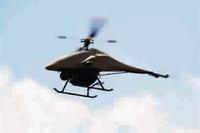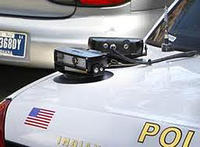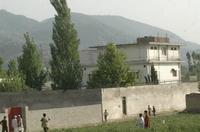-
Candidate for DHS deputy secretary under IG investigation
Alejandro Mayorkas, the director of the U.S. Citizenship and Immigration Services (USCIS) has been named by the DHS Inspector General (IG) office as a target in an investigation of the foreign investor program run by the USCIS. Mayorkas is President Obama’s choice for the deputy secretary post at DHS. If Mayorkas is confirmed as deputy secretary, he would most likely serve as acting secretary of DHS until a full-time replacement for Janet Napolitano is confirmed.
-
-
State Department approves U.S.-Canada pipeline, but it is not Keystone
The State Department has approved a U.S.-Canada pipeline, but it is not the Keystone XL project which is still being debated. The Vantage Pipeline will carry ethane from North Dakota through Saskatchewan into Empress, Alberta.
-
-
White House considering incentives for cybersecurity compliance
The Obama administration is considering whether to back tax breaks, insurance perks, and other legal benefits for companies which bolster their digital defenses. The incentives, which include limited protections from legal liability and tax incentives, would be set up to persuade power plants, water systems, chemical plants, and other critical infrastructure companies to comply with the voluntary cybersecurity rules which are being drafted as part of President Obama’s cybersecurity executive order.
-
-
Are nuclear weapons safe from cyber-attacks?
Research will look into whether today’s nuclear weapons are safe from computer hacking. Specifically, the research seeks to address the question of whether the ability to use and the confidence in nuclear weapons is being eroded by new cyber capabilities being developed by an increasingly large range of actors.
-
-
FAA warns Colorado town about drone hunting

The town of Deer Trail, Colorado is considering the idea of allowing town residents to purchase hunting permits to shoot down drones operated by the government. The proposed permit would cost $25, and residents would be entitled to a $100 reward from the city for a successful attempt to shoot down a drone, if the drone’s “markings and configuration are consistent with those used on any similar craft known to be owned or operated by the United States federal government.”
-
-
Idaho joins program connecting DMV information to E-Verify
Idaho became the third state to join the Records and Information from DMV’s for E-Verify (RIDE) program on Sunday. The other two states are Mississippi and Florida. RIDE automates motor vehicle document verification between Motor Vehicle Agencies (MVAs) and the United States Citizenship and Immigration Services (USCIS).
-
-
Florida teen indicted on terrorism charges
Shelton Thomas Bell, 19, of Jacksonville, Florida has been indicted on federal charges of conspiring to provide material support to terrorists. The indictment claims Bell planned to travel to Arabian Peninsula and join Ansar Al-Sharia (AAS), an alias for Al Qaeda in the Arabian Peninsula, to take part in “jihad.”
-
-
McCain will put a hold on Dempsey’s nomination for second term over Syria policy

Senator John McCain said yesterday (Thursday) that he will place a hold on the renomination of the nation’s top soldier, Army Gen. Martin Dempsey, for a second term as chairman of the Joint Chiefs of Staff, after he and Dempsey engaged in rather heated exchange over the administration’s policies toward the Syrian civil war. McCain bluntly said that the chairman of the Joint Chiefs of Staff was at least partly responsible for the administration’s “lackluster response” to the Assad regime’s aggression.
-
-
Ray Kelly’s DHS candidacy divides opinion

One of the leading candidates to succeed Janet Napolitano as DHS secretary is NYPD commissioner Ray Kelly. New York politicians strongly support his candidacy, and President Obama said he was ‘well qualified.” Civil rights groups object to his nomination, saying that while there is no doubt about his qualifications and dedication, some of the policies he has initiated in New York — for example, suspicionless stop-and-frisk, the mass arrest of protesters during the 2004 Republican Convention, and the surveillance of Muslim communities in the city and neighboring states — have been heavy-handed, perhaps even constitutionally questionable.
-
-
DHS raises Phoenix’s terror-risk ranking
DHS has raised Phoenix’s terrorist risk assessment three spots, from number eighteen to number fifteen. The change will entitle the city to $5.5 million in a federal security grant, $1.5 million more than it received from the same grant last year.
-
-
Angry lawmakers warn NSA to curb surveillance operations
John Inglis, the deputy director of the National Security Agency (NSA), told angry lawmakers yesterday that his agency’s ability to analyze phone records and online behavior is greater than what the agency had previously revealed. Inglis told members of the House Judiciary Committee that NSA analysts can perform “a second or third hop query” through its collections of telephone data and Internet records in order to find connections to terrorist organizations. Representative James Sensenbrenner (R-Wisconsin), the author of the 2001 Patriot Act, warned the intelligence officials testifying before the committee that unless they rein in the scope of their surveillance on Americans’ phone records, “There are not the votes in the House of Representatives” to renew the provision after its 2015 expiration. “You’re going to lose it entirely,” he said.
-
-
Pa. man sentenced to 8 ½ years for running a terrorism-promoting Internet forum
A western Pennsylvania man has been sentenced to eight and a half years in prison for leading an Internet forum which promoted terrorist attacks against American military and civilian targets. Emerson Begolly, 24, of Redbank Township was also convicted of having a concealed gun and biting an FBI agent when he was arrested in 2011.
-
-
Automatic license plate readers used to collect, store data on millions of Americans

Automatic license plate readers are the most widespread location tracking technology available to law enforcement. Mounted on patrol cars or stationary objects like bridges, they snap photos of every passing car, recording their plate numbers, times, and locations. At first the captured plate data was used just to check against lists of cars law enforcement hoped to locate for various reasons (to act on arrest warrants, find stolen cars, etc.). Increasingly, however, all of this data is being fed into massive databases that contain the location information of many millions of innocent Americans stretching back for months or even years.
-
-
U.S. research universities subject to sustained cyberattack campaign by China
Leading U.S. research universities report that they have been subject to millions of Chinese hacking attempts weekly. The Chinese are aware that universities, and the professors who do research under the schools’ auspices, receive thousands of patents each year in areas such as prescription drugs, computer chips, fuel cells, aircraft, medical devices, food production, and more. The Chinese government-sponsored cyberattacks on American research universities are an expansion of efforts by China to steal information that has commercial, political, or national security value.
-
-
OBL: Hiding in plain sight

Osama bin Laden had been living in his walled Abbottabad compound for nearly ten years, within sight of an elite Pakistani military academy, and gone completely unnoticed. According to a scathing official Pakistani report, the incompetence and negligence of Pakistan’s Inter-Services Intelligence (ISI) failed to realize that the world’s most sought-after terrorist leader had been living in Pakistan, until he was killed in a night-time raid by U.S. Navy SEALs on 2 May 2011.
-
More headlines
The long view
How Quickly Could Iran Make Nuclear Weapons Today?
For Iran, two of the three poles in the tent of building nuclear weapons – fissile material and delivery vehicles — are essentially complete. It will take them one week to enrich enough uranium to 90 percent for one bomb (and one month to enrich enough uranium for six bombs). Iran also has a variety of delivery systems, including nuclear-capable missiles: the delivery pole is ready. Weaponization is the pole that needs more work. The accelerated weaponization program can be accomplished in a matter of six months.
Fifty-Five Hours of Risk: The Dangerous Implications of Slow Attack Attribution
Assuming that its foreign adversaries’ recent violent threats are to be taken seriously, and that the likelihood of a direct attack against the United States is, if not on the rise, at least significant enough to warrant serious attention, the United States has an urgent mandate to prepare effective cognitive defenses. Foremost among these is the ability to quickly and accurately attribute attacks to their originators, and to deliver that information to the public through a trustworthy vehicle.
Is Left-Wing Terrorism Making a Comeback in Germany? Analyzing the “Engel – Guntermann Network”
For Germany, the reemergence of more violence orientated left-wing extremist actors has diversified the threat posed by non-state actors even further. Violent left-wing extremism is also of growing concern across Europe. While left-wing violent extremism does not currently represent as acute a threat as currently manifested by jihadist and right-wing terrorist attacks, the recent concerning trend among German left-wing extremists is toward greater violence and transnationalism.
The True Dangers of Long Trains
Trains are getting longer. Rail companies had recently adopted a moneymaking strategy to move cargo faster than ever, with fewer workers, on trains that are consistently longer than at any time in history. Railroads are getting richer, but these “monster trains” are jumping off of tracks across America and regulators are doing little to curb the risk.
New Report Card to Assess, Rank Campus Responses to Antisemitism
In the face of growing antisemitism across U.S. college campuses, ADL announced that it is developing a new tool to evaluate the climate of antisemitism on individual campuses. The ADL will create comparative evaluation of how leading colleges and universities are responding to the surge of antisemitism and protecting their Jewish students.
Truth Decay and National Security
The line between fact and opinion in public discourse has been eroding, and with it the public’s ability to have arguments and find common ground based in fact. Two core drivers of Truth Decay are political polarization and the spread of misinformation—and these are particularly intertwined in the national security arena. Exposure to misinformation leads to increased polarization, and increased polarization decreases the impact of factual information. Individuals, institutions, and the nation as a whole are vulnerable to this vicious cycle.
